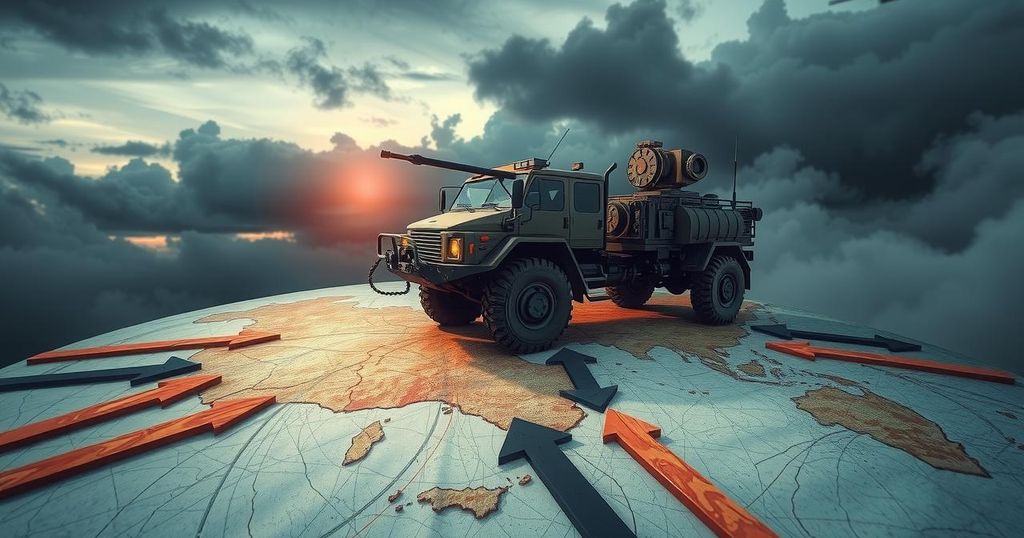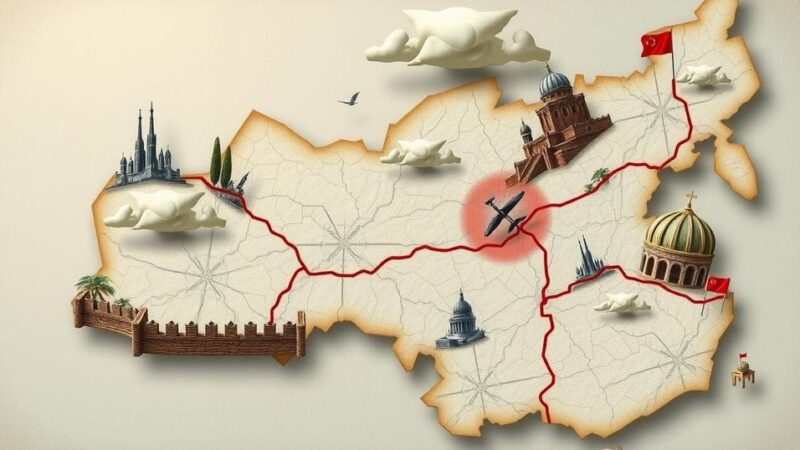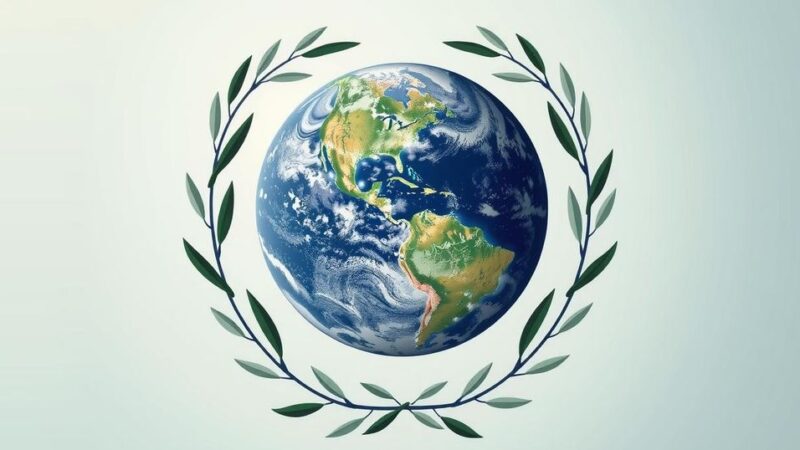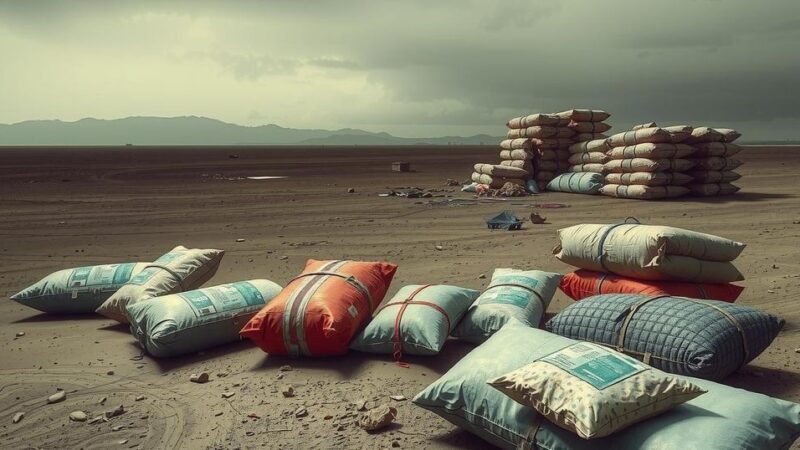Congo’s President Félix Tshisekedi urges youth enlistment in the military to counter the advancing M23 rebels, backed by Rwandan troops, as they seize control in eastern Congo. The rebels’ march towards Goma and Bukavu elicits panic among residents while regional discussions emphasize the urgency of dialogue and a ceasefire. Ethnic tensions and resource disputes underpin the ongoing conflict, raising concerns over a potential regional war.
Goma, Congo—In response to the increasing influence of Rwanda-backed M23 rebels, President Félix Tshisekedi has urged young individuals to enlist in the military. During a public address, he emphasized the need for a concerted effort alongside efforts for a peaceful resolution to the conflict. The M23 rebels, receiving support from approximately 4,000 Rwandan troops, recently advanced into the strategic city of Goma, an area crucial for the more than six million people displaced by ongoing violence in the eastern region.
The M23’s push into Goma has instigated panic within the local populace, particularly as the rebels are reportedly moving toward Bukavu, the capital of South Kivu. The Congolese military faces difficulties due to a reduction in support from foreign military contractors, further complicating their ability to resist the advancing rebels. Local reports indicate that military bases have been depleted as resources have been redirected to more strategic locations.
Amidst regional tension, a summit from the East African Community has called for an immediate ceasefire and urged President Tshisekedi’s government to engage in dialogue with the M23 insurgents. Observers have noted an unsettling rise in the potential for a wider regional conflict, especially considering the deteriorating relationships between Rwandan and South African officials over the ongoing conflict.
The M23 rebels are perceived to be strategically positioning themselves for long-term control of eastern Congo, a region rich in valuable mineral deposits. The accompanying ethnic tensions have historical roots, traced back to events from the 1994 Rwandan genocide. The M23 describes its mission as a defense of the Tutsi minority within Congo, claimed to be facing persecution. Experts believe that there is an escalating failure in African mediation efforts amid rising aggressive rhetoric from both Rwanda and the Congolese government.
The conflict involving M23 rebels in eastern Congo has persisted for years, driven by both ethnic strife and a struggle for control over the area’s mineral wealth, estimated to be worth $24 trillion. This ongoing turmoil has roots in the aftermath of the 1994 Rwandan genocide, where the displacement of Hutus and Tutsis intertwined their fates, contributing to recurring cycles of violence. The M23 insurgency has evolved from earlier conflicts, with heightened military support from Rwanda complicating the situation further as they seek to establish territorial control in the resource-rich region, leading to significant humanitarian crises. Regional dynamics further affect the conflict, with Rwanda and South Africa both holding strategic interests and blaming each other for the instability. The Congolese government struggles with internal challenges, including a weakened military and public outcries for effective governance against rebel groups, emphasizing the need for a robust response both militarily and politically.
In summary, President Tshisekedi’s call for mass military recruitment reflects the urgent need for a united front against the M23 rebels, whose influence continues to expand dangerously into key urban areas in eastern Congo. The historical backdrop reveals complex ethnic tensions and geopolitical stakes influenced by Rwanda and South Africa, heightening the stakes for regional stability. The international community’s response remains crucial as the risk of a broader conflict looms, exacerbating an already dire humanitarian situation in the region.
Original Source: apnews.com







